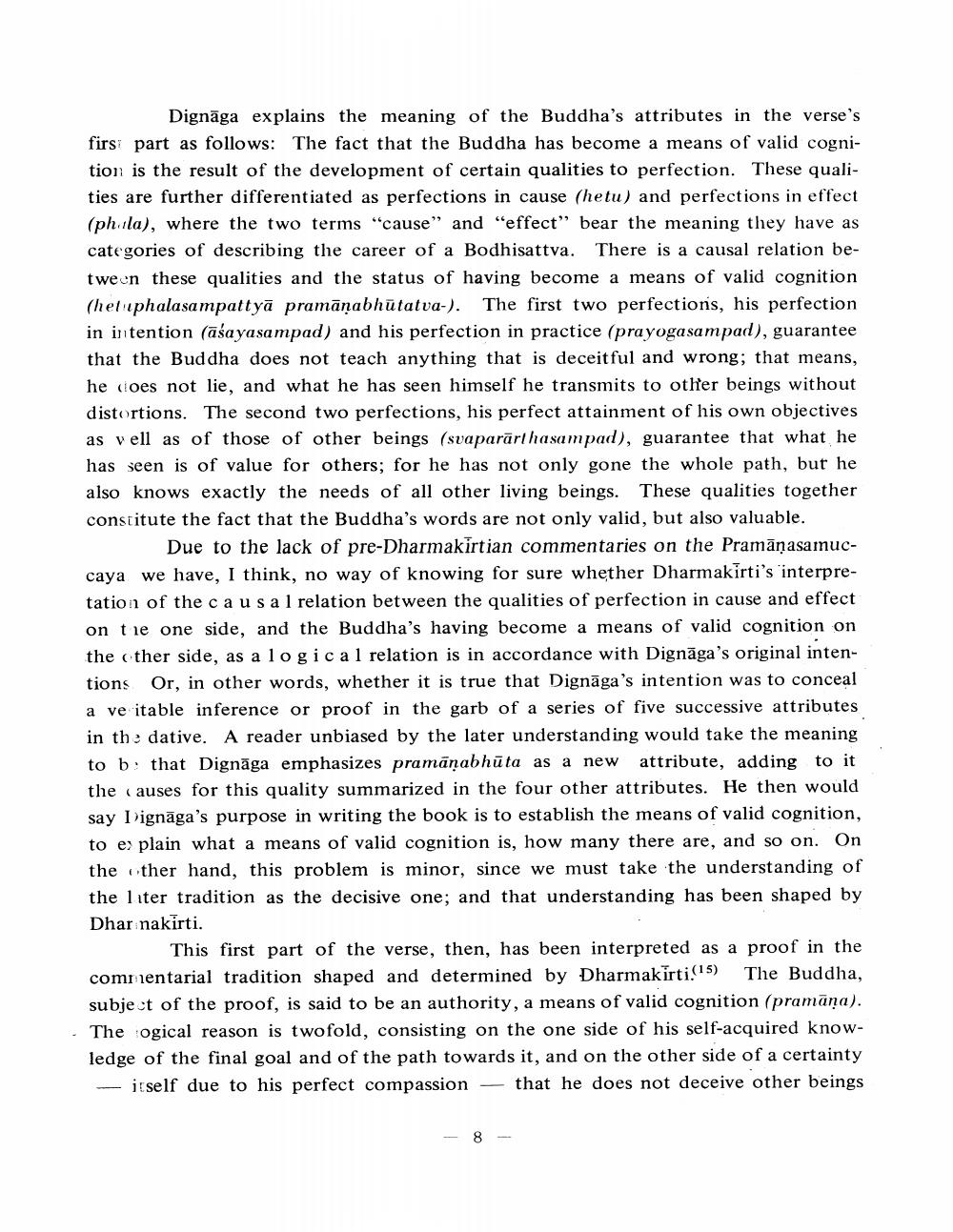Book Title: Spiritual Place Of Epistemological Tradition In Buddhism Author(s): Ernst Steinkellner Publisher: Ernst Steinkellner View full book textPage 8
________________ Dignāga explains the meaning of the Buddha's attributes in the verse's firsi part as follows: The fact that the Buddha has become a means of valid cognition is the result of the development of certain qualities to perfection. These qualities are further differentiated as perfections in cause (hetu) and perfections in effect (phila), where the two terms "cause" and "effect" bear the meaning they have as categories of describing the career of a Bodhisattva. There is a causal relation between these qualities and the status of having become a means of valid cognition (hel iphalasampattyā pramāṇabhūtatva-). The first two perfections, his perfection in intention (āśayasampad) and his perfection in practice (prayogasampad), guarantee that the Buddha does not teach anything that is deceitful and wrong; that means, he does not lie, and what he has seen himself he transmits to other beings without distortions. The second two perfections, his perfect attainment of his own objectives as v ell as of those of other beings (svaparārt hasampad), guarantee that what he has seen is of value for others; for he has not only gone the whole path, but he also knows exactly the needs of all other living beings. These qualities together constitute the fact that the Buddha's words are not only valid, but also valuable. Due to the lack of pre-Dharmakirtian commentaries on the Pramāṇasamuccaya we have, I think, no way of knowing for sure whether Dharmakirti's interpretation of the ca u s a l relation between the qualities of perfection in cause and effect on the one side, and the Buddha's having become a means of valid cognition on the other side, as a logical relation is in accordance with Dignāga's original intentions Or, in other words, whether it is true that Dignāga's intention was to conceal a ve itable inference or proof in the garb of a series of five successive attributes in the dative. A reader unbiased by the later understanding would take the meaning to b: that Dignāga emphasizes pramāṇabhūta as a new attribute, adding to it the causes for this quality summarized in the four other attributes. He then would say Dignāga's purpose in writing the book is to establish the means of valid cognition, to explain what a means of valid cognition is, how many there are, and so on. On the other hand, this problem is minor, since we must take the understanding of the liter tradition as the decisive one; and that understanding has been shaped by Dhar nakirti. This first part of the verse, then, has been interpreted as a proof in the commentarial tradition shaped and determined by Dharmakirti.(15) The Buddha, subject of the proof, is said to be an authority, a means of valid cognition (pramāna). The ogical reason is twofold, consisting on the one side of his self-acquired knowledge of the final goal and of the path towards it, and on the other side of a certainty - itself due to his perfect compassion — that he does not deceive other beings - 8 -Page Navigation
1 ... 6 7 8 9 10 11 12 13 14 15 16 17 18
